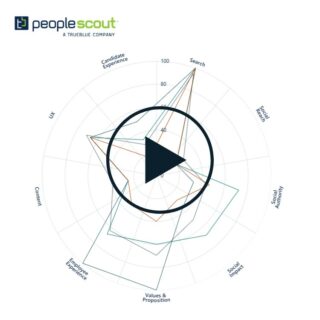It’s been a long time since you’ve taken an English class, but those grammar lessons make a difference when you’re writing your resume. Even if you’re applying to jobs where writing isn’t a big part of the job description, spelling and grammar errors, typos and other writing mistakes can make an impact on the person reading your resume. Here are a few of the most common.
Not using the correct style when listing your academic degree
When referring to a bachelor’s or master’s degree, there are two correct ways to write it. If you’re referring to a general degree, lowercase the name and use an apostrophe. When referencing the specific area of your degree, capitalize the name of the degree and don’t use an apostrophe. An associate degree never uses an apostrophe.
- Correct: I have a bachelor’s degree. I have a master’s degree.
- Incorrect: I have a Bachelor’s degree. I have a masters degree.
- Correct: I have a Bachelor of Science in Business Administration. I have a Master of Arts in Education.
- Incorrect: I have a bachelors of science in business administration. I have a Master’s of Arts in Education.
- Correct: I have an associate degree.
- Incorrect: I have an associates degree. I have an associate’s degree.
Using the wrong verb tense
As you write your resume, it’s easy to switch between past and present tense like “work” and “worked” without paying a lot of attention. However, if you do this haphazardly, it looks unprofessional. As you write your resume, use present tense when you describe your responsibilities at your current job, like “Create quarterly reports.” However, if you’re referencing a one-time, past accomplishment at your current job, then use past tense, like “Developed new filing and organizational practices, decreasing costs by 20 percent.”
When describing your responsibilities and accomplishments at any previous jobs, always use past tense.
Using the wrong homophone
Homophones are words that sound the same but have different spellings and meanings, like “their,” “there” and “they’re.” Here are a few of the most common.
They’re/there/their: “They’re” is short for “they are.” “There” refers to a location. “Their” means something belongs to them.
To/Too/Two: “Two” refers to the number. “Too” can mean “also” or “very,” as in “I would like to go too if you aren’t too busy.” “To” is a preposition that means “in the direction of,” as in “I reported the error to my manager.”
It’s/Its: “It’s” is a contraction of “it is.” “Its” is possessive, meaning “belonging to it.”
Your/You’re: “You’re is a contraction of “you are.” “Your” is possessive, meaning “belonging to you.”
Affect/Effect: “Affect” is usually a verb. Use it to describe an action like, “My new website design affected leads, causing an increase of 20 percent.” “Effect” is usually a noun. Use it to describe the result of something like, “The certification had a major effect on team productivity.”
Using apostrophes incorrectly
It’s easy to use apostrophes too often or not often enough. There are two reasons you should use apostrophes in your writing.
- You are using a contraction like “can’t,” “it’s” or “you’re.”
- You are using a possessive like “managed the team’s finances.”
- Incorrect: Never use apostrophes when talking about plurals like “managed six employee’s.”
Using incorrect capitalization
When you’re writing your resume, it’s east to start capitalizing words that don’t need to be capitalized. It can get pretty confusing. Read the earlier section on degrees to see when you should capitalize those words. If you’re not sure if something should be capitalized, look it up and look up some example resumes. Here are a few other reasons to capitalize:
- A proper noun like the name of a company
- Your job title as a bullet point or before your name, but not if it stands alone in a sentence or comes after your name.
- Correct: At the conference, Company XYZ President Jane Doe delivered the keynote. Jane Doe, president of Company XYZ, delivered the keynote at the conference.
- Incorrect: At the conference, Company XYZ president Jane Doe delivered the keynote. Jane Doe, President of Company XYZ delivered the keynote.
- Names of cities
- Months and days of the week
- Names of universities
- Brands
- The first word in a bullet point



